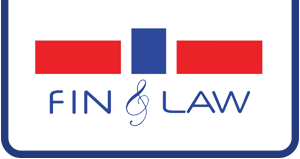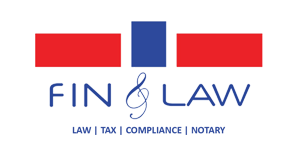On 17th July 2020 the Government of Tanzania has published the Electronic and Postal Communications (Online Content) Regulations, GN No. 538 of 2020, (“the Regulations”). These Regulations are made under section 103 (1) of the Electronic and Postal Communications Act, Cap. 306 of the Laws of Tanzania and replaces the earlier regulations that were issued in 2018 (GN No. 133 of 2018.)
What and where do the new Regulations Apply:
According to regulation 2, the Regulations are meant to regulate and apply to:-
- Online Content service providers,
- Internet Service providers,
- Application services licensees,
- Online Content Users,
- And any other related online content.
What is Online Content
The Regulations defines Online Content as information in form of speech or other sound, data, text or images whether still or moving except where transmitted in private communications.
The term Online is also defined as a networked environment available via online whereby content is accessible to or by the public whether for a fee or otherwise and which is intended for consumption in or originated from Tanzania altogether forming an Online Content.
Registration of online content providers:
From 17 July 2020, the Regulations have prohibited any persons from providing online content without obtaining a license from the Tanzania Communication Regulatory Authority (TCRA). Any person intending to provide Online Content must apply for License from TCRA. The Application must be accompanied with documents and necessary information and details of the Applicant as may be required by TCRA as well as payment of the application fees.
Punishment for Non-Compliances for Online Content users
Regulation 4(2) imposes Punishment of not less than 5 million Tanzania shillings or to imprisonment for a term of 12 months or to both for any person who contravenes or operates an Online Content without a valid License from TCRA.
Categories of Online Content License
According to Regulation 5 there are 4 categories of Online Content Licenses. These are;
- License for provision of news and current affairs issued to an online content service provider that covers news, events and current affairs;
- License for provision of entertainment content issued to an online content service provider that covers music, movies, series, plays, drama, comedy, sports and any other related entertainment content;
- License for provision of education and religious content issued to an online content service provider that covers religious information and content that aims at educating; and
- Simulcasting license issued to mainstream broadcasting licensee with national coverage rights.
The Licenses granted under these categories are subject to renewal after a period of 3 years.
What are the requirements needed when applying for an Online Content license?
Regulation 6(1), 7, and 8 provides for application, Issuance and Revocation of License upon fulfilling certain conditions. Any person who intends to provide online content services must apply to TCRA for license. The application must be accompanied with several documents and information as prescribed by the regulations and any other information as may be requested by TCRA.
What are the duties and obligations of the Online Content Providers.
The Regulations provides for the obligations of Online Content providers to include but not limited to:
- Obligation to ensure the online content is safe, secure and does not contravene the provisions of any written law;
- It is also the Obligation of Online Content Provider to take into account trends and cultural sensitivities of the general public.
- Furthermore, it is the obligation of online content providers to use moderating tools to filter prohibited Content published online but more importantly to have in place mechanisms to identify source of content and ensure prohibited content is removed within twelve hours upon being notified.
- Moreover, Online Content providers are obliged to use moderating tools to filter prohibited content and also ensure such prohibited content is removed immediately upon being ordered by the Authority;
- More importantly, Online Content providers are required to use a password to protect any user equipment, access equipment or hardware to prevent unauthorised access or use by unintended persons
- Online Content providers are also obliged to cooperate with law enforcement officers in pursuing functions under these Regulations
The obligation of Subscribers and user of online content (Regulation 14)
- The Regulations put obligations to subscribers and user of online content to be responsible and accountable for the information they posts in an online forum, social media, blog and any other related media
Obligations of Online Radio, Online Television and Bloggers:
- Online radio, online television and bloggers are required to abide to regulations governing the broadcasting services in Tanzania.
- Further, according to the regulations, they are required to adhere to journalism ethics and professionalism and integrity.
- In addition to these obligations, online radio, online television and bloggers are required to adhere to copyright and intellectual property laws and regulations and adhere to local content requirements.
- Moreover, these obligations apply to Tanzanian residents and Tanzanian citizens outside the country, non-citizens of Tanzania residing in the country, blogging or running online forums with contents for consumption by Tanzanians.
Regulation of Internet Café
- All internet cafes are required to ensure that all computers used for public internet access at the Café are assigned public static IP addresses.
- Also, owners of internet café are also required to establish and publish a safe internet use policy for safe use of the internet with regards to online content and must post it on conspicuous place for customers to read before using the services (Regulation 13).
- Moreover, Internet Café must also put in place mechanisms to filter access to prohibited content;
- Owners of internet Café will also be required to install surveillance camera to record and archive activities inside the Café.
- Further, the owners of Internet Café are now required to keep a proper register of users and ensure every person using internet service is registered upon showing a recognized identity card.
- More importantly to note is that, it is the requirement of the Regulations that the CCTV images recorded in the Internet Café, as well as the register of users, are to be kept for a period of 12 months.
What are the Obligation of Subscribers and users of Online Content
The Regulations put responsibility and accountability for Subscribers and Users of Online Content for the information they posts in an online forum, social media, blog and any other related media.
Prohibited Contents
According to the third schedule to the Regulations, the following are among the Prohibited Online Content:-
- content that motivates, promotes or facilitates publishing or exchanging child pornography, actual pornography, explicit sex acts, nudity and vice, save for related scenes approved by the body responsible for film classification and certification;
- content that depicts, motivates, promotes or facilitates publishing or exchanging of homosexuality, adultery, prostitution, sex crimes, rape or attempted rape and statutory rape, or bestiality;
- content that motivates, supports or promotes practices or trading of sexual or immoral goods such as movies, photos, drawings, books, stories, sexual games, toys and related things
- Indecent content save for sex and nudity sex scenes approved by the body responsible for film censorship in Tanzania;
- Obscene content;
- Hate speech;
- Content that portrays violence, whether physical, verbal or psychological; that can upset, alarm and offend viewers and cause undue fear among the audience or encourage imitation;
- Content that portrays sadistic practices and torture, explicit and excessive imageries of injury and aggression, and of blood or scenes of executions or of people clearly being killed;
- Content that causes annoyance, threatens harm or evil, encourages or incites crime, or leads to public disorder;
- Content which advocates hate propaganda or promotes genocide or hatred against an identifiable group;
- Content that may threaten national security or public health and safety such as-
- Making available instructions and guidance on bomb-making, illegal drug Production or counterfeit products;
- Disseminating false information with regards to outbreak of racial disturbances in a specific part of the country;
- Circulating information and statements with regards to possible terrorist attacks;
- Circulating or making available information with regards to the outbreak of a deadly or contagious disease.
- Content that uses bad language including-
- The use of disparaging or abusive words which is calculated to offend an individual or a group of persons;
- Crude references words, in any language commonly used in the United Republic,
- Words which are considered obscene or profane including crude references to sexual Intercourse and sexual organs;
- Use of False content which is likely to mislead or deceive the public unless where it is clearly pre-stated that the content is a Satire and parody or it is a Fiction; and where it is preceded by a statement that the content is not factual
Child Protection
It is the requirement of the Regulations that a person who provides online content or operates an internet Café to put safeguards against children access to prohibited contents but also ensure to provide content filtering mechanism and parental control
Complaint handling
The Regulations put a requirement for an Online Content provider to withdraw or delete within 12 hours any content that has been complained of by any person. Failure to resolve the complaint, the aggrieved person may, within 30 days from the date of filing of complaint, refer the complaint to TCRA.
DOWNLOAD FIN & LAW -Client Update -August 2020 -Electronic and Postal Communication -Telecommunication Law
DISCLAIMER: THIS PUBLICATION HAS BEEN PREPARED FOR GENERAL INFORMATION ON MATTERS OF INTEREST ONLY. IT DOES NOT CONSTITUTE LEGAL OPINION OR PROFESSIONAL ADVISE ANYHOW. YOU SHOULD NOT ACT UPON THE INFORMATION CONTAINED IN THIS PUBLICATION WITHOUT OBTAINING SPECIFIC PROFESSIONAL ADVISE AND GUIDANCE. NO REPRESENTATION OR WARRANTY (EXPRESS OR IMPLIED) IS GIVEN TO THE ACCURACY OR COMPLETENESS OF THE INFORMATION CONTAINED IN THIS PUBLICATION. FIN & LAW DOES NOT ACCEPT OR ASSUME ANY LIABILITY, RESPONSIBILITY OR DUTY OF CARE FOR ANY CONSEQUENCES, LOSS OR INCONVENIENCE FOR ANY CONSEQUENCES OF YOU OR ANYONE ELSE ACTING OR REFRAINING TO ACT, IN RELIANCE ON THE INFORMATION CONTAINED IN THIS PUBLICATION OR ANY DECISION BASED ON IT.



